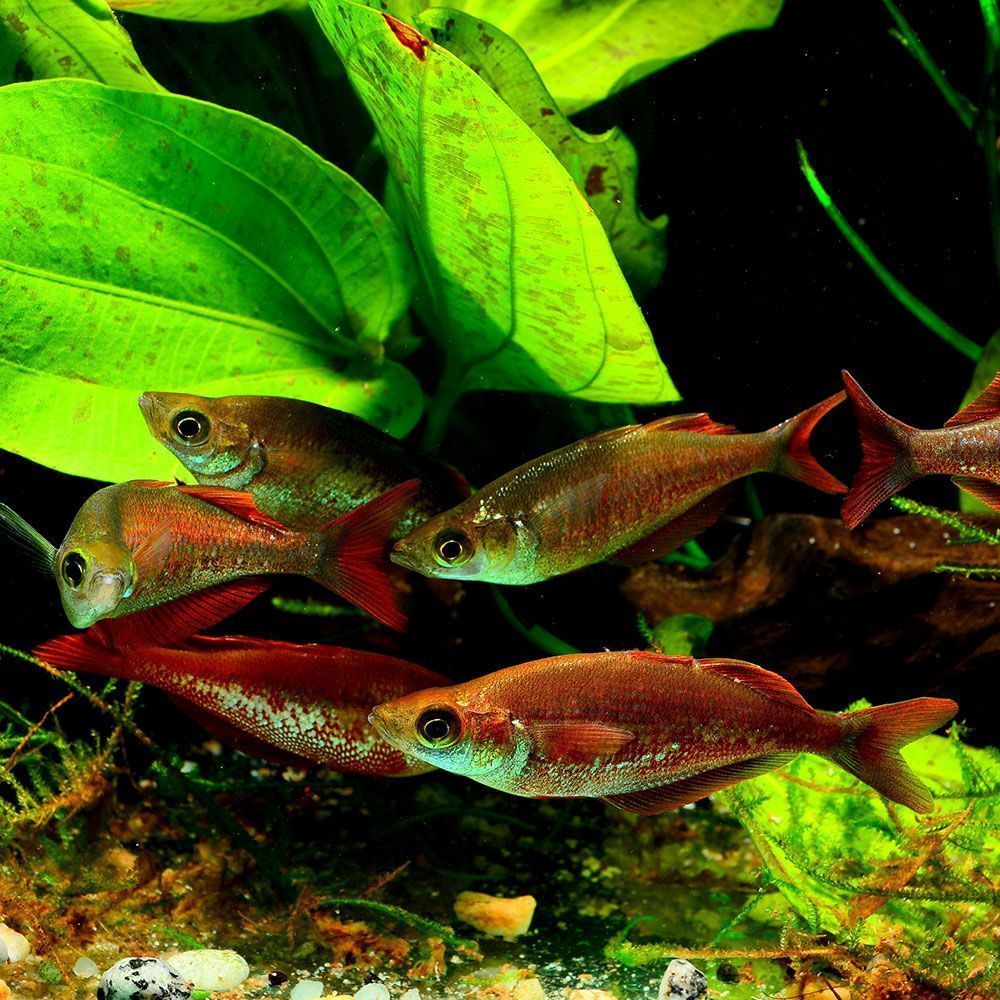Yes, fish pee. Freshwater fish absorb water through their skin involuntarily. Their kidneys process the water, retain salts, and expel diluted urine through a urinary pore or gills. Saltwater fish drink water voluntarily, and their kidneys retain most water and expel concentrated urine – usually via gills.
Did you know that it was found from a study that a fin whale (length: up to 26 m or 85 ft; weight: up to 160,000 lbs) passes 257 gallons of urine every day? In comparison, smaller species pass only a few drops of pee.
Like other living beings, all kinds of fish pee to eliminate their body waste. Fish urine also has important nutrients for other aquatic animals’ survival.
Further, if you want to know more about the fascinating process of fish peeing, jump into the detail!
Do Saltwater and Freshwater Fish Pee Differently?
Freshwater and saltwater fish have different processes, frequencies, and even amounts of produced urine.
Freshwater fish mostly excrete urine through gills and a urinary pore near their tail after being filtered via their kidneys. While saltwater fish usually prefer their gills.
But, the males of some species urinate through anal vents. This is because their anal chambers swell during mating season, which further increases their surface area.
How do fish pee?
After water enters the fish’s body, the body undergoes osmoregulation. Simply put, the kidneys help maintain the internal balance of salt and water within the fish.
Fish kidneys (placed right above their swim bladder) filter out the toxins from the blood, excess water, and salts in their body through pee.
These extraordinarily developed kidneys aren’t only used for peeing. It also helps in producing new blood cells. This is because fish don’t have bone marrow.
Note: Fish have two kidneys (pronephros and mesonephros), which have varied appearances depending on the species. But they are usually smaller and stretched out.
There’s a slight difference in the urination of freshwater and saltwater fish.
How do Freshwater Fish pee?
Freshwater fish have a higher salt concentration in their body than their environment. So, through osmosis, the water enters involuntarily into the freshwater fish through their skin. They don’t even need to drink the water.
The kidneys help the fish retain solute from the absorbed water and direct most water into the urine. Eventually, they let out diluted pee. The salt is then redistributed to the entire fish body.
How do Saltwater Fish pee?
On the other hand, saltwater fish have a body with lower salt concentrations than their surroundings. To avoid losing even more water due to osmosis, they drink water intentionally. This leads to excess salt intake as well.
The kidney absorbs most water from the consumed water. They then separate the salt and expel them in the form of extremely concentrated urine.
What does fish pee look like?
Freshwater fish urine is usually colorless because it is extremely diluted. But sometimes it can be yellow to brown.
In the case of saltwater fish, it’s always yellowish to brown because of its high solute concentration.
What is the frequency of the fish pee?
Most fish don’t have urinary bladders like humans, so they can’t store pee. That’s why there’s no particular frequency of their urination.
While freshwater fish constantly pass urine, saltwater fish try to hold water in their body and urinates once every 1-2 days.
If a fish stops urinating, it will get puffed, and its scales will stick out. This sign is a serious indication of gill and kidney issues – called renal dropsy.
It is not a disease but a distressed condition of kidney failure due to another illness. Once this happens, the fish won’t live long.
What is the quantity in which the fish pee?
Freshwater fish pee a lot more than others because of the constant passive water absorption through their skin.
Saltwater fish pees a lot less because they try to hold water inside them. They ensure they only pass out as much as necessary to expel waste easily.
Lastly, the urinary system of brackish fish is extremely adaptable. Since they face varied environments, including different salinity and pressure, they adjust accordingly!
The quantity of urine also varies depending on the size of the fish.
What is the smell of fish pee?
Fish pee smells like ammonia due to its high concentration. However, that doesn’t imply that you can smell it in natural water bodies. This is because its contents constantly undergo changes and get absorbed by plants and reefs.
But in aquariums without good filtration, the water will reek of ammonia due to fish pee. Of course, that won’t be the case with reliable filters and regular water changes!
What happens to the fish pee in water?
Most people get grossed out when they know fish swim around their own pee. But fish pee isn’t just nasty dirt. Instead, it gives life to the fish’s environment.
In nature, fish urine gets dissolved in the water and absorbed by aquatic plants and corals. The wild ecosystem benefits from useful nutrients like ammonia, urea, creatinine, creatine, phosphorus, amino acids, and nitrous and nitrogenous waste in fish urine.
On the other hand, if there are not enough plants in the aquarium for the number of fish, the urine mostly stays as dissolved toxins. That’s why regular water changes are important to maintain fish health.
How does fish pee affect its environment?
Fish urine has different effects on their surroundings depending on multiple factors. So, let’s figure out what happens to this waste in different ecosystems.
In Nature
Fish pee works as one of the best nutrients for algae and seagrass growth in waterbodies and plant growth on coral reefs. The vegetation can work as food for the fish.
Corals themselves also get nutrition from fish urine. As a result, it’s known that overfishing affects coral reefs extremely. The urine also provides nutrition to phytoplankton.
In Aquarium
In aquariums, fish urine can affect a number of things. So, let’s slowly understand them one at a time.
How does fish pee affect the water in the aquarium?
Since aquariums are confined water bodies compared to natural ones, they get dirty pretty quickly. You must clean and perform frequent water changes in aquariums. Otherwise, the water will reek of ammonia.
How does fish pee affect the plants in the tank?
As in the wild, aquarium plants will also absorb the nutrients from the fish’s urine.
How does fish pee afect the décor of the aquarium?
Fish urine promotes algae growth on the surface of your aquarium decor.
How does fish pee affect other species in the aquarium?
Without frequent aquarium water maintenance – water changes and filtration, the water can become full of ammonia and other toxins. If left untreated, it can drastically affect the excreting fish and other species’ health to the point of poisoning them.
Of course, with optimum cleaning, no species will be hurt.
Is fish pee harmful to the humans and other mammals?
In natural water bodies, fish pee gets highly diluted. So, if you and your dog want to go for a swim, it won’t hurt if you consume some of that water accidentally.
Consequently, the same doesn’t hold true for aquarium water. That water has a much higher urine concentration because of its lower volume, so it’s not safe to drink.
But if your pet – a dog or cat – accidentally consumes aquarium water, seek a vet immediately. Be extra cautious, especially if it’s a saltwater aquarium or is medicated!
A word from FishInAquarium
Whether you plan to build an aquarium or already have one, it’s always better to know about your fin buddies’ peeing details. It’s not only interesting but also reminds you to check your tank regularly and keep them healthy.
Now, if you believe you got some golden information here, share it with other fish enthusiasts. But if there’s anything else on your mind, mail us, and we’ll get back with your answers!


